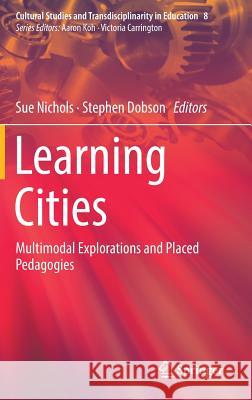Learning Cities: Multimodal Explorations and Placed Pedagogies » książka
topmenu
Learning Cities: Multimodal Explorations and Placed Pedagogies
ISBN-13: 9789811080982 / Angielski / Twarda / 2018 / 246 str.
Kategorie:
Kategorie BISAC:
Wydawca:
Springer
Seria wydawnicza:
Język:
Angielski
ISBN-13:
9789811080982
Rok wydania:
2018
Wydanie:
2018
Numer serii:
000467127
Ilość stron:
246
Waga:
0.54 kg
Wymiary:
23.39 x 15.6 x 1.6
Oprawa:
Twarda
Wolumenów:
01
Dodatkowe informacje:
Wydanie ilustrowane











